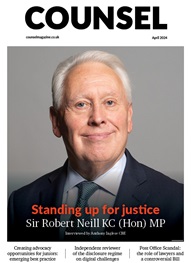*/
From 27-30 June, the 4th Conference of the ten referral bar professions (Australia, England & Wales, Hong Kong, Ireland (Rep.), Namibia, New Zealand, Northern Ireland, Scotland, South Africa and Zimbabwe) took place in Dublin and Belfast.
The Conference, which was attended by nearly 200 delegates, looked mainly at the issue of human rights in the context of the fight against terrorism and discussed the lawyer’s role in relation to this. Inspiring and challenging speeches were made by, among others, the President of Ireland, Mary McAleese, Prof. Conor Gearty (LSE and Matrix Chambers), Dame Nuala O’Loan (former Police Ombudsman for Northern Ireland) and Beatrice Mtetwa (President of the Law Society of Zimbabwe), which looked at the important role of the independent referral bar in ensuring that the rule of law is protected given the tendency of the executive branch to take controversial measures in the light of the undeniable terrorist threats to society.
The conference also discussed the future of the referral bar professions. In response to well-known concerns from the other barrister professions, the Chairman of the Bar Council, Timothy Dutton QC, explained that the Council’s proposals in relation to the implementation of the Legal Services Act 2007 were to maintain the general prohibition on partnership (with a relaxation in relation to those practising in the publicly-funded Bar) and holding clients’ money as well as the upholding the cabrank rule.
The Conference, which was attended by nearly 200 delegates, looked mainly at the issue of human rights in the context of the fight against terrorism and discussed the lawyer’s role in relation to this. Inspiring and challenging speeches were made by, among others, the President of Ireland, Mary McAleese, Prof. Conor Gearty (LSE and Matrix Chambers), Dame Nuala O’Loan (former Police Ombudsman for Northern Ireland) and Beatrice Mtetwa (President of the Law Society of Zimbabwe), which looked at the important role of the independent referral bar in ensuring that the rule of law is protected given the tendency of the executive branch to take controversial measures in the light of the undeniable terrorist threats to society.
The conference also discussed the future of the referral bar professions. In response to well-known concerns from the other barrister professions, the Chairman of the Bar Council, Timothy Dutton QC, explained that the Council’s proposals in relation to the implementation of the Legal Services Act 2007 were to maintain the general prohibition on partnership (with a relaxation in relation to those practising in the publicly-funded Bar) and holding clients’ money as well as the upholding the cabrank rule.
From 27-30 June, the 4th Conference of the ten referral bar professions (Australia, England & Wales, Hong Kong, Ireland (Rep.), Namibia, New Zealand, Northern Ireland, Scotland, South Africa and Zimbabwe) took place in Dublin and Belfast.


Sam Townend KC explains the Bar Council’s efforts towards ensuring a bright future for the profession
Giovanni D’Avola explores the issue of over-citation of unreported cases and the ‘added value’ elements of a law report
Louise Crush explores the key points and opportunities for tax efficiency
Westgate Wealth Management Ltd is a Partner Practice of FTSE 100 company St. James’s Place – one of the top UK Wealth Management firms. We offer a holistic service of distinct quality, integrity, and excellence with the aim to build a professional and valuable relationship with our clients, helping to provide them with security now, prosperity in the future and the highest standard of service in all of our dealings.
Is now the time to review your financial position, having reached a career milestone? asks Louise Crush
If you were to host a dinner party with 10 guests, and you asked them to explain what financial planning is and how it differs to financial advice, you’d receive 10 different answers. The variety of answers highlights the ongoing need to clarify and promote the value of financial planning.
Most of us like to think we would risk our career in order to meet our ethical obligations, so why have so many lawyers failed to hold the line? asks Flora Page
If your current practice environment is bringing you down, seek a new one. However daunting the change, it will be worth it, says Anon Barrister
Creating advocacy opportunities for juniors is now the expectation but not always easy to put into effect. Tom Mitcheson KC distils developing best practice from the Patents Court initiative already bearing fruit
Sam Townend KC explains the Bar Council’s efforts towards ensuring a bright future for the profession
The long-running fee-paid judicial pensions saga continues. The current cut-off date for giving notice of election to join FPJPS is 31 March 2024, and that date now gives rise to a serious problem, warns HH John Platt